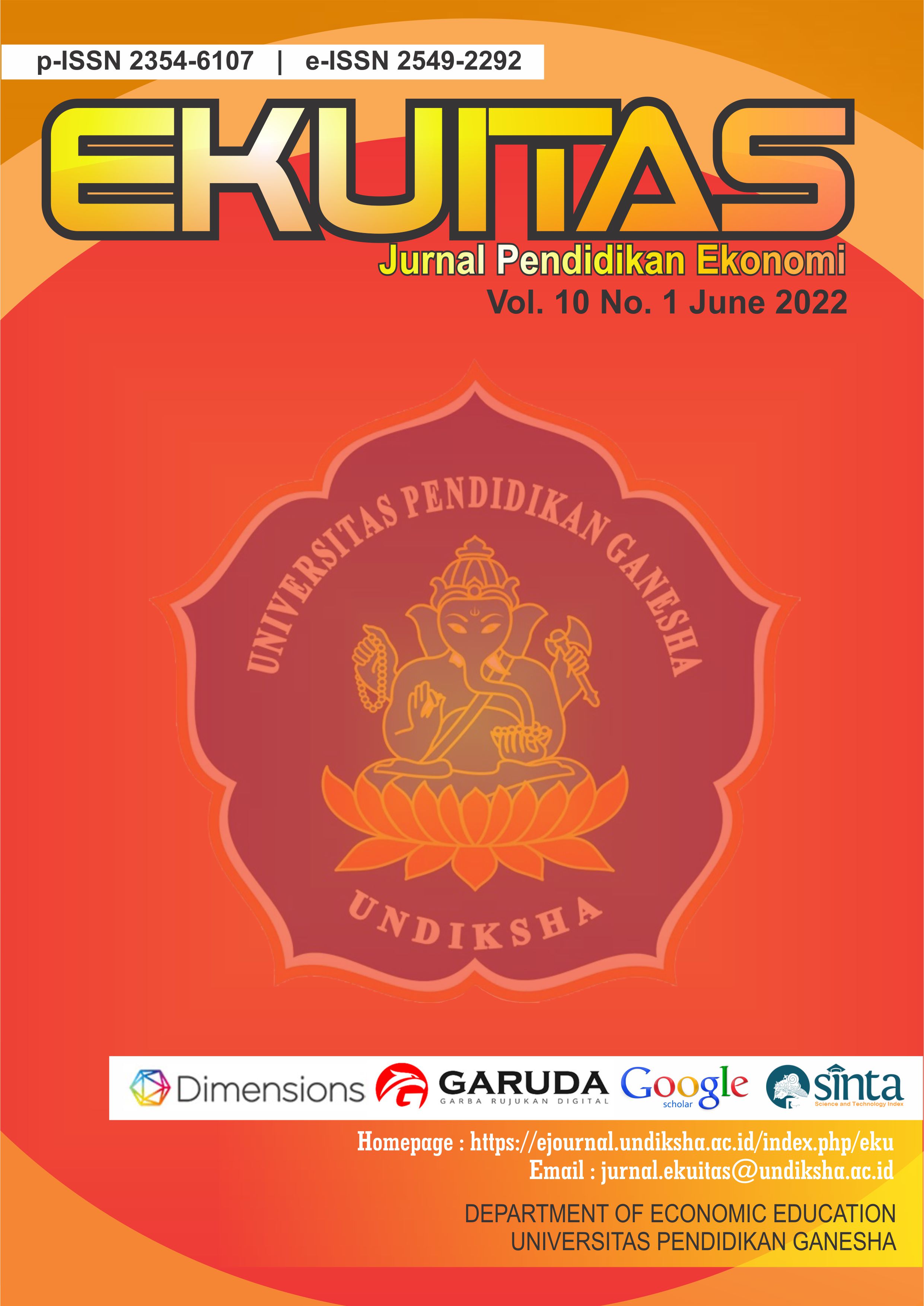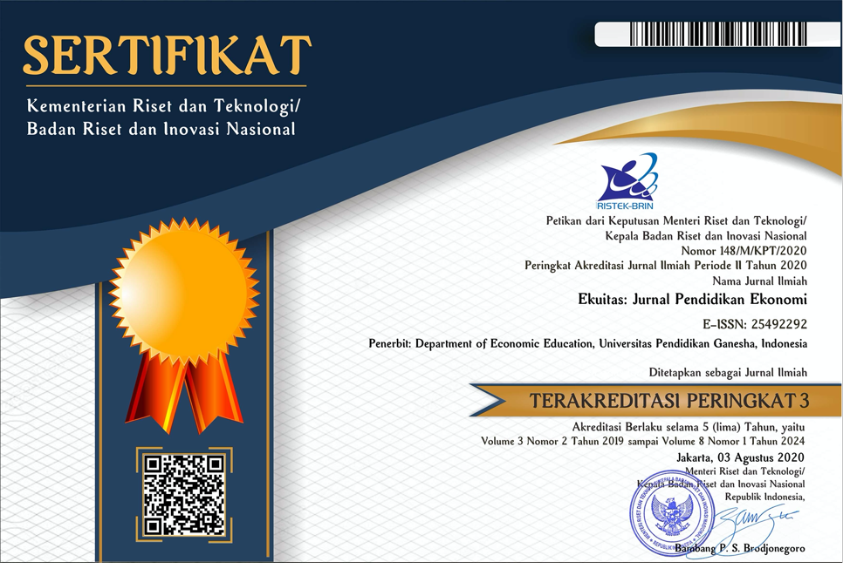Pemanfaatan E-Learning Berbasis Moodle Terhadap Hasil Belajar Siswa Kelas XI IPS Mata Pelajaran Ekonomi di SMAN Bali Mandara
DOI:
https://doi.org/10.23887/ekuitas.v10i1.31339Keywords:
IPS learning outcomes, learning cycle 5E, learning modelAbstract
This study aims to determine that Moodle-based E-Learning media have an effect on student learning outcomes in class XI IPS at SMAN Bali Mandara. Conducted in August 2019. This study used a quasi-experimental method with pretest and posttest designs. The sample data was collected using Test. The research sample consisted of 30 students for the control class and 30 students for the experimental class. Collecting data using a test instrument in the form of multiple choices, data analysis using the t test. The results obtained by the Independent Sample Test above are guided by the value contained in the "Equal variances assumed" table where the Sig. (2-tailed) of 0.000 <0.05, so as the basic decision making in the independent sample t test it can be concluded that H0 is rejected and Ha is accepted. The average increase in student learning outcomes in the experimental class is 79.33 and the control class is 62, 40. So that the alternative hypothesis (Ha) is accepted so that there is an influence on the use of Moodle-based E-learning on student learning outcomes. It is suggested that the school should provide support for the development of E-Learning-based learning by facilitating the use of the internet in schools as a learning aid, so that students can study independently and economics teachers, especially in SMA / MA, use E-Learning in learning so that students don't feel bored. Learning activities are very flexible because they can be adjusted according to the time available for students.
References
Bakri, F., Fajriani, F. and Muliyati, D. (2017) ‘Media E-learning Berbasis CMS JOOMLA: Pelengkap Pembelajaran Fisika SMA’, Jurnal Teknodik, 21(2), pp. 99–110.
Basuki, G. D. (2015) ‘Pengembangan E-Learning Berbasis Moodle Pembelajaran IPA Bagi Siswa Kelas V SD Negeri Kotagede I’, Jurnal Teknologi Pendidikan, 1(1), pp. 1–10.
Budiarti, Y. (2015) ‘Penerapan Knowledge Management System pada E-Learning dengan Metode COLLES Untuk Meningkatkan Hasil Belajar Siswa’, Indonesian Journal on Software Engineering, 1(1), pp. 36–41.
Candiasa, I. M. (2010) Pengujian Instrumen Penelitian Disertai Aplikasi ITEMAN dan BIGSTEPS. Singaraja: Universitas Pendidikan Ganesha Press.
Dwihartanti, M. (2018) ‘Pemanfaatan Media Pembelajaran E-Learning di Fakultas Ekonomi UNY’, Jurnal Efisiensi, 15(2), pp. 51–63.
Mawardi (2020) ‘Keefektifan Flexible Learning dalam Menumbuhkan Self-Regulated Learning dan Hasil Belajar Mahasiswa PGSD’, Jurnal Pendidikan dan Kebudayaan, 10(3), pp. 251–262.
Samsuddin, Y. (2016) ‘Pemanfaatan E-Learning Moodle pada Mata Pelajaran Matematika di SMK Negeri 5 Makassar’, Jurnal Ilmu Komunikasi, 2(1), pp. 65–72.
Suartama, I. K. (2015) ‘Strategi Pengembangan dan Pemanfaatan E-learning Dalam Proses Pembelajaran’, Scientific Forum-Faculty of Education Departement of Science Education (FIP-JIP) and The International Seminar, 1(1), pp. 719–728.
Sugiyono (2012) Metode penelitian kuantitatif kualitatif dan R&D. Bandung: Alfabeta.
Tiara (2015) ‘Pengembangan Media E-Learning Berbasis Moodle pada Kompetensi Dasar Jurnal Khusus untuk Siswa Kelas XII IPS Semester Gasal di SMA Negeri 4 Jember’, Jurnal FKIP UNS, 1(1), pp. 1–8.
Downloads
Published
How to Cite
Issue
Section
License
Copyright (c) 2022 Ekuitas: Jurnal Pendidikan Ekonomi

This work is licensed under a Creative Commons Attribution-ShareAlike 4.0 International License.








